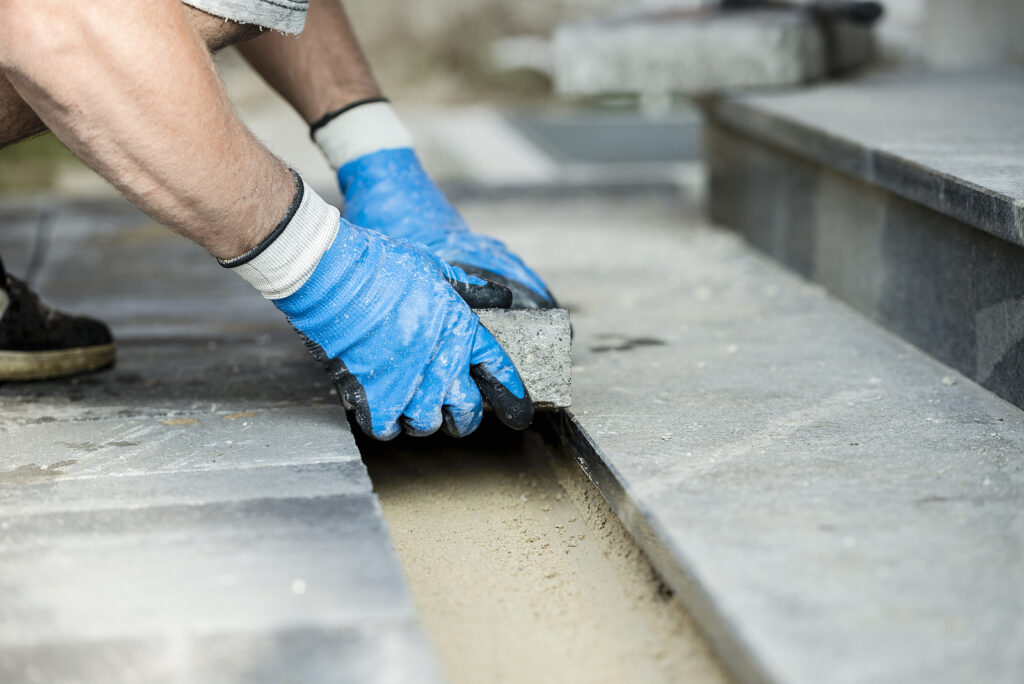If you are on the market for new commercial flooring, you will find that there are many materials to choose from, all ranging in quality, dimensions, color, styles, textures, and more. Of all the options out there, decorative concrete seems to remain a top choice among business owners and commercial real estate developers. Although you have several other options to choose from, there are many reasons to consider decorative commercial concrete; especially if you are looking for a cost-effective and modern upgrade to your business, building, or development.
Continue reading to learn more about the benefits of decorative commercial concrete, plus how other popular commercial flooring options compare in terms of quality, integrity, and price.

The Benefits of Commercial Concrete Floors
Not only is decorative concrete flooring inexpensive and easy to install, but it can also be customized to mimic any style, texture, color, or look. Decorative commercial concrete flooring can be stamped, stained, colored, died, treated, scored, polished, and so much more. This means that it can be designed to mimic higher in materials like tile, marble, cobblestone, brick, and slate, but cost less.
The options are virtually endless, and only limited by your own imagination and creativity. To learn more about the various benefits of decorative concrete flooring, talk to a local Indianapolis commercial flooring contractor who specializes in commercial construction and remodel work.
Popular Alternatives and How They Compare
Tile – Tile is expensive, and the options of styles and colors are limited. Also, tile requires a stricter care regiment in order to protect the grout lines and prevent cracking. If you are looking for high maintenance and high prices, tile flooring is right for you.
Brick – Sure, brick is beautiful. In fact, it’s quite stunning; however, brick is incredibly high maintenance and prone to a long list of damages. This makes it a poor fit for an interior flooring option.
Natural Stone – Cobblestone and other types of natural stone materials commonly used for flooring are high maintenance and high-priced. They are more prone to cracking and crumbling and require strict care regimen in order to maintain clean grout lines.
Linoleum/Vinyl – Linoleum and vinyl flooring are common options for both residential and commercial properties because they are inexpensive and low maintenance. On the other hand, linoleum and vinyl are often viewed as outdated, so many potential buyers are turned off by such flooring. This isn’t good for anyone who wishes to sell their property in the future.
Carpet – Carpeting is highly susceptible to several types of damages, especially staining and foot traffic. It is also more of a challenge to clean and keep clean. Carpets also retain dander and dust and other types of allergens, which can be irritating to those who suffer from upper respiratory illnesses and implications.
Wood – Not only is wood expensive in its natural state, but it is also a challenge to maintain. Wood is a natural element, therefore it susceptible to scratches, scrapes, and discoloration, so often times, it needs restoration after a few years.
Would you like to upgrade or restore the appeal of your business or building with new commercial flooring? Contact BAF Corporation at 317-253-0531 for qualified commercial flooring renovations in Indianapolis, Indiana. We serve clients all throughout the state. Request information or schedule a bid, today.
Related Posts:
Modern Wheelchair Accessibility Options for Commercial Properties
The Value of Hybrid Flooring Systems for Commercial Real Estate
The Advantages of Commercial Engineered Wood Floors

